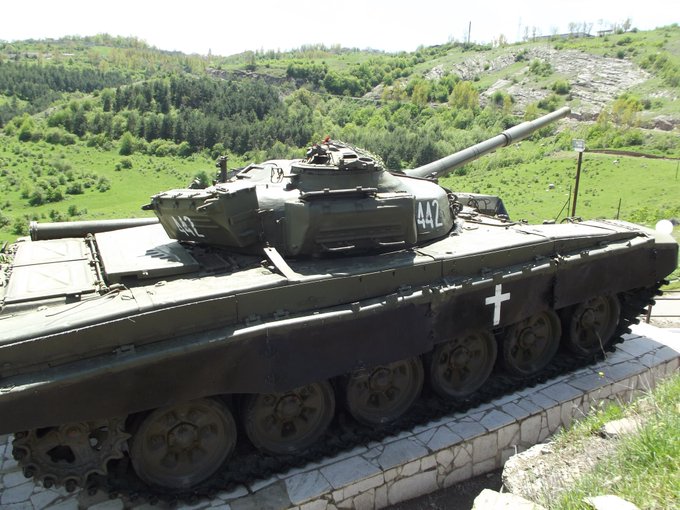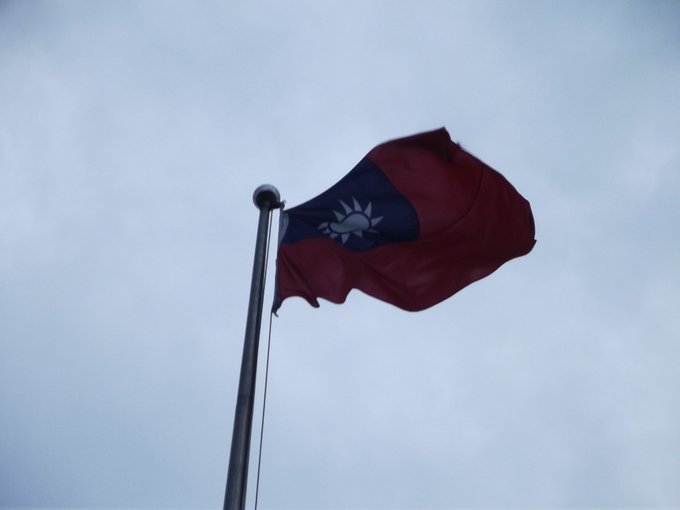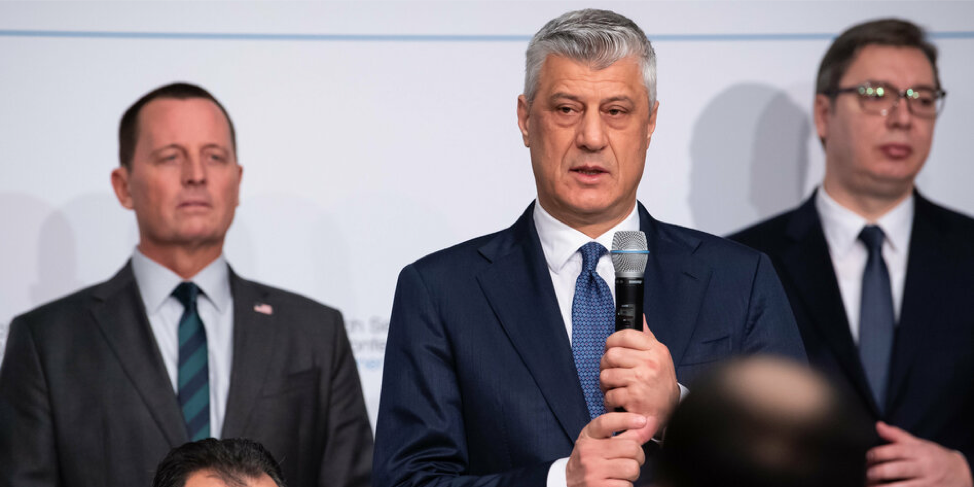Déjà-vu or ‘Walking Towards a New Future’? Northern Cyprus After the October 2020 Presidential Elections
While the ongoing Nagorno-Karabakh conflict seems to currently dominate public debates on de facto states, the recent presidential elections in Northern Cyprus (TRNC) may portend the escalation of tensions over yet another resilient de facto state whose status awaits final resolution. In the second round of a fiercely disputed contest, the conservative Turkish Cypriot prime-minister, Ersin Tatar (National Unity Party, UBP) narrowly defeated the incumbent, Mustafa Akinci (independent), to become the fifth president of the Turkish Republic of Northern Cyprus (TRNC). Tatar, who received strong and overt backing from Turkey’s ruling party, AKP, openly advocated in favour of a two-state solution and secured 51.74% of the run-off vote. Akinci, who was backed by leftist Turkish Cypriot parties, ran on a reunification platform and garnered 48.26% of the vote. Tatar’s support came mainly from the northern and eastern districts (Girne/Kyrenia, Gazimagusa/Famagusta, and Iskele/Trikomo) while Akinci won the western and southern districts (Lefkosa/Nicosia, Lefke/Lefka, Guzelyurt/Gelveri). Observers noted that Tatar’s victory was possible due to the wide support he received in Iskele/Trikomo, a district largely populated by Turkish settlers who relocated to the island from mainland Turkey. Here, Tatar received almost 70% of the vote, which seems to have decisively tipped the balance in his favour.
With Tatar’s election, many anticipate a hardening of Turkish Cypriots’ position in negotiations over the final status of the island. A similar sentiment prevailed ten years ago when another National Unity Party (UBP) hardliner, Dervis Eroglu (who also held the position of TRNC prime-minister at the time) narrowly defeated the social-democratic, pro-unification incumbent, Mehmet Ali Talat (Turkish Republican Party, CTP) in the first round of the presidential race. Much like Tatar, Eroglu campaigned on an independence platform and pledged not to actively push for a UN-brokered settlement. Although adopting an apparently uncompromising position before the elections, Eroglu eventually came back to the negotiation table, not least because of Turkey’s then preferred confederal solution for the island.
At first glance, a sense of déjà-vu is patently germane to the 2020 presidential elections in Northern Cyprus. Many would be quick to point to a familiar script that played out along comparable parameters exactly a decade ago: a nationalist hardliner candidate who is running on a radical platform to garner votes but who, under domestic and international pressure, later softens his stance and resumes peace negotiations. Upon closer scrutiny, however, there is a fundamental difference between the 2010 and 2020 TRNC presidential vote: Turkey’s preferences and its interference in the Northern Cypriot elections. In 2010, Ankara was still harbouring, at least in principle, dreams of EU integration and was still hoping that a resolution of the conflict would overcome opposition to its EU membership from Cyprus and Greece. As such, before and after the 2010 TRNC presidential vote, Recep Tayyip Erdogan (Turkey’s prime-minister at the time) made it clear that Ankara would continue to support the bi-zonal, bi-communal solution for Cyprus regardless of who would win presidential elections in the TRNC. More importantly, the 2010 presidential race was contested with little direct interference from Turkey.
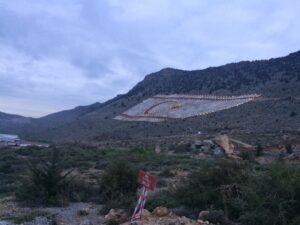
Image: The flag of the Turkish Republic of Northern Cyprus on a hillside above Taskent, Northern Cyprus (Source: Adrian Florea)
Fast forward ten years to 2020 and the situation is markedly different, all in the context of a geopolitically assertive Turkey and of Turkish Cypriot malaise, fatigue, and frustration at the multiple rounds of failed negotiations over the final status of the divided island.* Unlike most previous elections in Northern Cyprus when Ankara did not directly intervene to affect the outcome, this time around the ruling AKP Party in Turkey and president Erdogan overtly and systematically supported Tatar and sought to undermine Akinci’s re-election bid. In the context of acrimonious relations between Akinci and Ankara (earlier into the year, Akinci described the idea of TRNC being annexed by Turkey as ‘horrible,’ which prompted a harsh reaction from Turkish officials; during the campaign, Akinci allegedly received death threats from Turkish officials), AKP unleashed a barrage of subversion tactics whose ultimate goal was Akinci’s unseating.
The list of direct and indirect meddling orchestrated by the Turkish government is quite extensive. Erdogan openly and unequivocally expressed his support for UBP’s presidential candidate throughout the entire campaign, Turkish deputies visited villages across Northern Cyprus urging citizens to vote for Tatar, and the Turkish media (with a large number of followers in Northern Cyprus) carried live broadcasts of Tatar and Erdogan announcing large public projects despite a ban on campaigning prior to the vote. On the eve of the vote, the propaganda against Akinci escalated on social media as well where the TRNC president was portrayed as an enemy of Turkey and Turkish interests. The highlight of Ankara’s interference in the election was the October 8 reopening, despite domestic and international opprobrium, of the ghost resort town of Varosha/Maras which had been sealed off by the Turkish army since 1974. With little doubt, this highly contentious and much publicised move was meant to rekindle nationalist sentiment and increase turnout among right-leaning Turkish Cypriot voters.
Turkey’s concerted campaign of subversion and disinformation appears to have been decisive in shaping voters’ preferences and/or turnout in the runoff that saw Ersin Tatar emerge victorious (denouncing Turkish ‘meddling and interference,’ some trade unions and lawyers’ groups immediately refused to recognise the outcome of the election). Emblematic of how much Ankara’s efforts likely steered the vote in his favour, in his victory speech, Tatar directly thanked the Turkish president for his support. Despite his popularity with moderate segments of the Turkish Cypriot society, Akinci lost because he did not heed an unwritten rule in Northern Cyprus which says that ‘no Turkish Cypriot president or ruling party can afford to come into conflict with the Turkish government.’
After this disputed presidential election, will Northern Cyprus be really ‘walking towards a new future’ as Tatar pledged with his campaign slogan or will the situation swiftly revert to the stasis of the post-2004 (Annan Plan) period? Looking at Tatar’s and Erdogan’s recent public pronouncements, that ‘new future’ emphatically envisages a ‘two-state solution’ for the ongoing dispute. Its rhetorical appeal aside, both Tatar and Erdogan are aware that that the partition of the island is not viable, at least not in the short term: such a radical move would be fiercely opposed both domestically and internationally. At the same time, for both Turkey and Turkish Cypriot hardliners, the status quo appears to no longer be palatable either. Under these circumstances, the more plausible scenario of a ‘new future’ is one where Northern Cyprus drifts ever closer into Turkey’s orbit and becomes more closely aligned with what TRNC nationalists call the ‘motherland, as well as one where Ankara exerts more direct interference in TRNC’s internal affairs. In effect, this alternative ‘new future’ would be akin to, at worst, de facto annexation or, at best, the North becoming a protectorate of Turkey. Many Turkish Cypriot hardliners are likely to view the result of the presidential elections as societal repudiation of the bi-zonal, bi-communal solution and to claim a strong popular mandate for pursuing alternative options.
Yet, it would be rather naïve to assume that Turkish Cypriot politicians, even hardliners, would be open to embrace a ‘new future’ where they completely cede decision-making power over Northern Cyprus to Ankara. Such a ‘new future’ would exacerbate the growing polarization of Turkish Cypriots and might even foment internal unrest. Since the North’s de facto separation in 1974, relations with Turkey have unfolded in line with an unwritten political compact according to which Turkish Cypriots would maintain a fair degree of independent decision-making power while not agreeing to a final settlement on the island’s status that would not be acceptable to Ankara. Turkish Cypriots are fully aware that Northern Cyprus would not be able to survive without Turkey’s military, economic, and diplomatic assistance. At the same time, TRNC leaders, regardless of political fabric, have always been wary of Turkey dictating affairs in the north part of the island. Even nationalist hardliners have historically been unwilling to become puppets of the mainland.
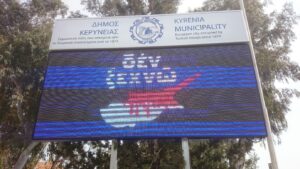
Image: Greek Cypriots are not eager to forget the Turkish military intervention in 1974 (Source: Eiki Berg)
Thus, it may be the case that both Tatar’s and Erdogan’s uncompromising stance may be a coordinated strategy through which the former puts pressure on Greek Cypriots to adopt a less intransigent negotiation position and the latter consolidates Turkey’s regional standing. Viewed through this lens, the recent presidential elections in Northern Cyprus are but one other tool employed by Ankara to gain bargaining leverage in the context of growing tensions between Turkey, Cyprus, and Greece over the exploration of natural deposits in the Mediterranean Sea, or to force the Greek Cypriots to adopt a more accommodating position in status negotiations. Whether Turkey’s approach is a genuine attempt to unilaterally change the status quo on the island, force the Greek Cypriots to compromise, or in a pure Clausewitzian fashion, continue the regional competition with Greece and Cyprus through other means, it is clear that it does not bode well for the prospects of a peaceful resolution of the Cyprus problem. Whatever is left in the reservoir of optimism about an accord between the Turkish and Greek Cypriots is slowly dripping away. While Cyprus will continue to bask in the warm Mediterranean sun, ominous political clouds are starting to gather on the horizon.
Author: Adrian Florea
*Interview (13 February, 2019) with Kudret Ozersay, 2020 presidential candidate, former TRNC deputy prime-minister and minister of foreign affairs, and current leader of the centrist People’s Party (HP, established in January 2016, on an anti-corruption platform).


